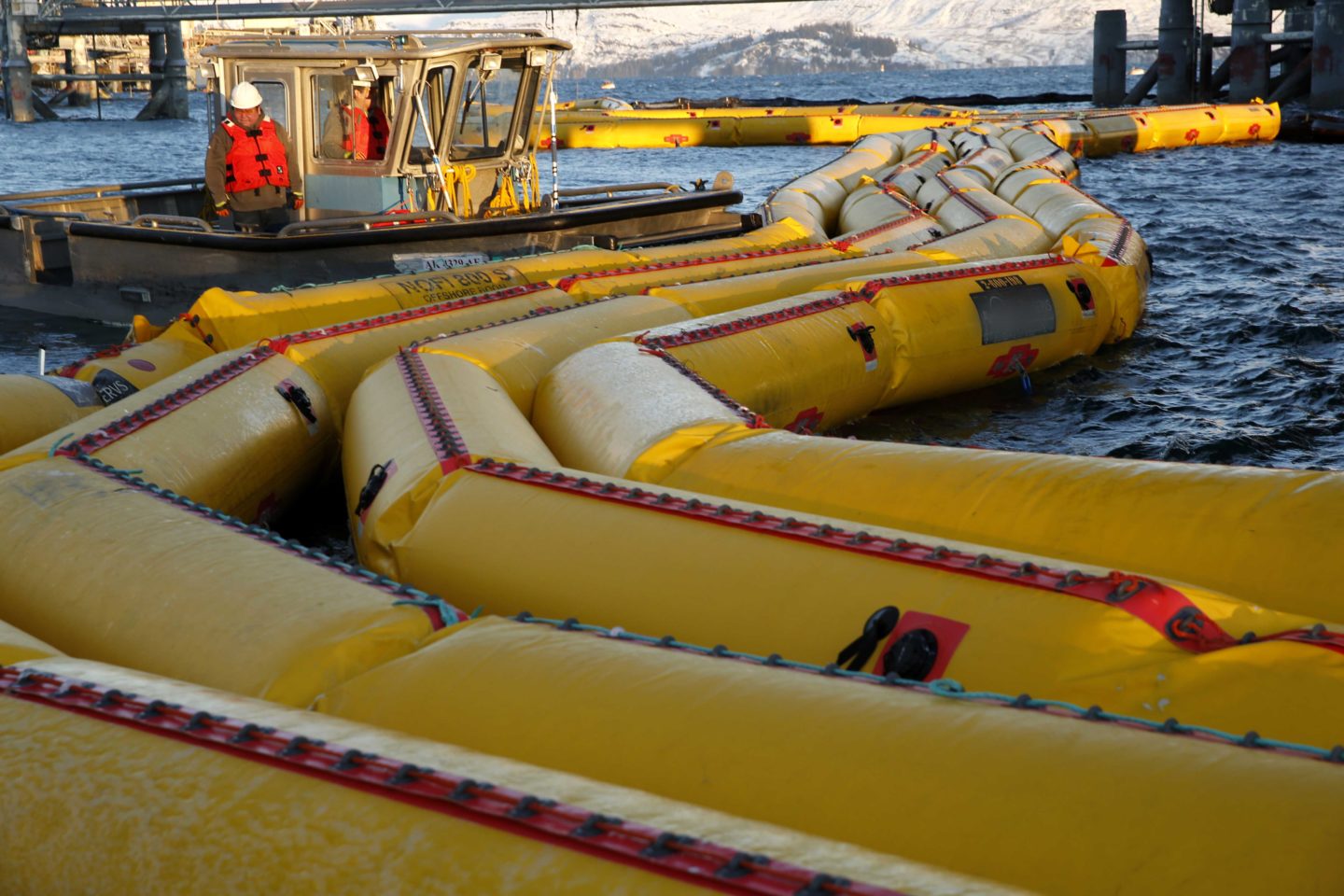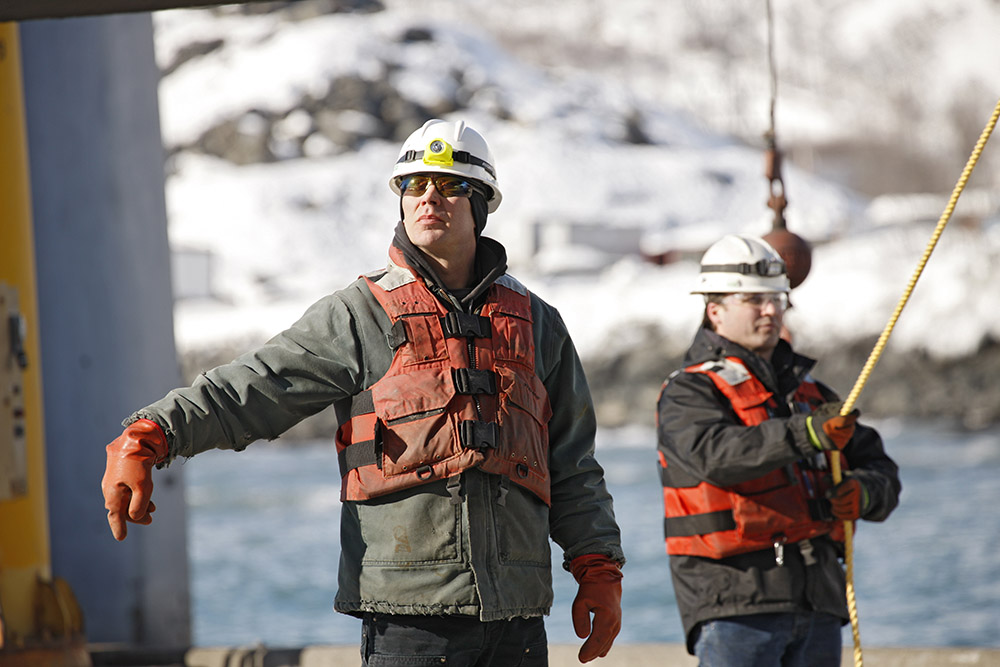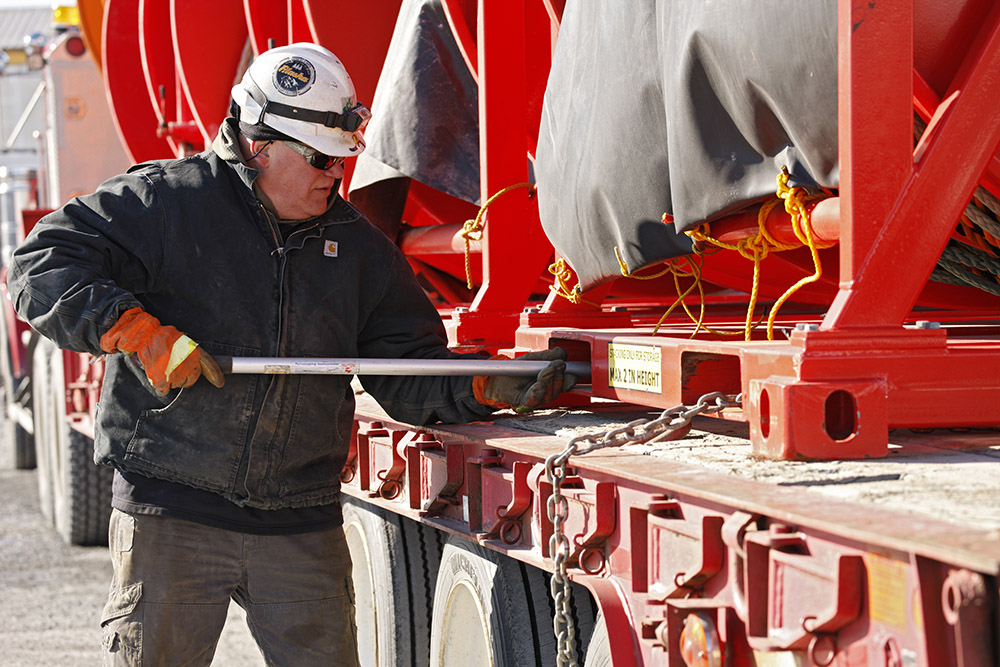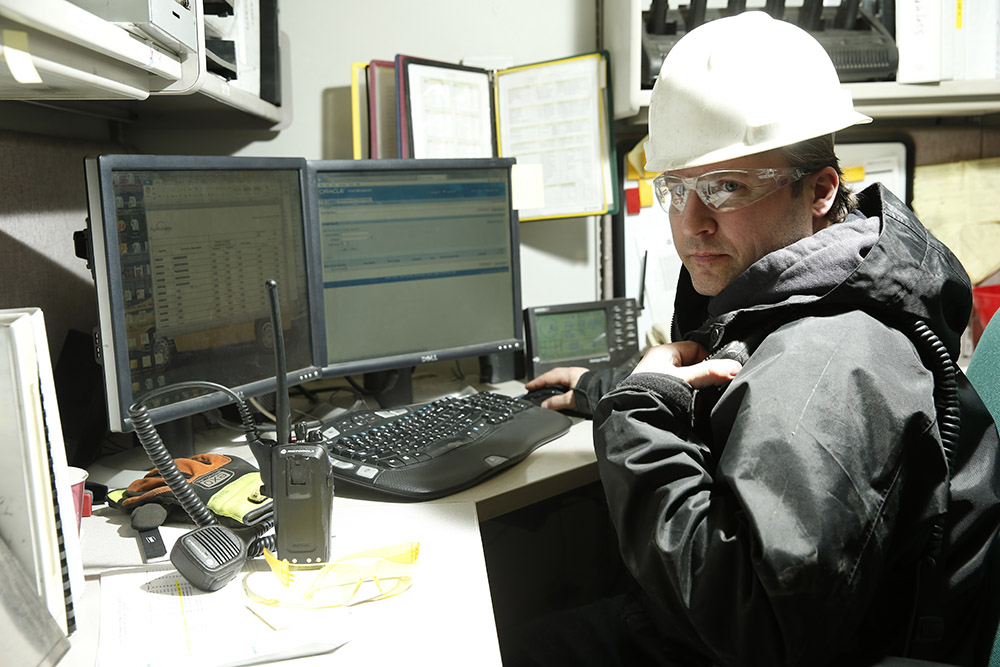“For us, it’s the same with oil spills,” MacDonald went on. “We never want to see oil in the water, but on the rare occasions it happens, more than 25 years of experiences kicks in, and we immediately start deploying equipment and doing our part to protect the public and the environment.”
TCC, LLC, known as TCC, is a partnership between the Tatitlek Corporation, the Chenega Corporation and the managing partner Chugach Alaska Corporation. For more than 26 years under contracts with Alyeska Pipeline Service Company (Alyeska), TCC has provided personnel and expertise to maintain and deploy Alyeska’s stockpile of oil spill response equipment located through Prince William Sound (PWS) and Southcentral Alaska.
The Trans Alaska Pipeline System (TAPS) delivers a large portion of the supply of oil to Alaska and the West Coast of the United States. This oil is a vital component of the nation’s economy. In early 2020, the world began to hunker down and social distance to lower the spread of COVID-19, but the work of TCC employees had to go on to ensure the lifeblood of the United States economy continued to safely flow through TAPS.
On the evening of April 12, 2020, as most of the world sheltered in place as per COVID-19 health mandates, the TCC employees were performing their duties when an oil sheen was discovered on the water near the Valdez Marine Terminal’s (VMT) small boat harbor. Priorities immediately shifted, and within one hour of detection, TCC crews were hard at work, initiating containment and recover efforts.
“In my career, I’ve worked at nearly every level in the oil spill response apparatus that protects PWS,” MacDonald stated. “Now in my leadership role at TCC, I’ve never been prouder to be a spill responder, especially with the added complexity of COVID-19. On April 12 and in the days since, TCC has done an incredible job of lessening the impact of this spill and recovering the oil. More than two and a half decades of experience came together, and we shined throughout.”
The response began with containment efforts and deployment of boom at the small boat harbor and at two sensitive area sites in the Port of Valdez: Solomon Gulch Hatchery and the Valdez Duck Flats. The rapid response paid off, and no oil was detected outside of the containment area at the small boat harbor. Once containment was established, skimmers were deployed to recover the discharged oil. In total, 1,350 barrels of oil and water were recovered during the response operations.
In addition, as a result of the successful spill response, TCC was able to provide their regular services that allowed the TAPS oil tankers to make visits the VMT and safely load oil for transport to refineries along the West Coast. “We were definitely pulling double duty,” MacDonald stated. “TCC is in place to provide oil spill response services to Alyeska and the TAPS tankers that transit PWS. Normally, we’re strictly there for maintenance and prevention. During the spill response, we met both of these obligations all while playing the lead in the hands-on containment and recovery efforts.”
Safety was paramount throughout the response with priorities placed on the health and wellbeing of all response personnel and the PWS community and the protection of the environment. All responders, including the TCC employees, remained aware of and adhered to state, local and Alyeska company policies to keep themselves and the public safe from exposure to COVID-19.
“Safety is definitely another area where we shine,” MacDonald said. “Behind the nuclear power plants in the lower 48, TAPS is the second most regulated entity in the United States. With that degree of scrutiny and the mission of safely moving the nation’s oil, safety must be at the forefront of everything we do. Chugach and TCC’s safety motto is ‘Safety Today Secures Tomorrow’. That means today, right now, safety vigilance every second for every employee who puts on a TCC hardhat, especially during a spill.”
MacDonald went on to identify the most important statistic of the VMT small boat harbor spill. “Every factsheet and update posted by the spill’s Unified Command – comprised of representatives from Alyeska, the United States Coast Guard and the Alaska Department of Environmental Conservation – stated: no injuries,” MacDonald said. “We got the oil out of the water, and no one got hurt. You can’t ask for more than that.”
It’s one thing for the General Manager of TCC to boast about his organization’s adherence to safety; it’s another thing entirely to have the Governor of the State of Alaska make a similar boast. But that’s exactly what happened when TCC received Governor Dunleavy’s Safety Award of Excellence.
The Governor’s Safety Award of Excellence is presented to organizations demonstrating distinction in the following: safety and health of their personnel, the environment, assets and reputation that demonstrates and promotes superior corporate citizenship.
For more than a quarter century, TCC has been providing oil spill and emergency response services, oil spill prevention support, and oil spill boom and equipment deployments, during normal and emergency operations, drills, exercises, and training. TCC operations include boom deployments, skimmer operations, small boat operations, tanker and berth booming and debooming operations, and maintenance and deployement of boom mooring systems, vessel mooring systems, remote site boom deployment systems, remote site contingency storage units, dispersant application systems, in situ burning operations, dock and barge work.
The most important statistic that secured the award for TCC was the fact TCC employees have accumulated more than 1,000,000 hours without a single Lost Time Accident. This number grew substantially as a result of the hours worked during the spill response, and the fact that this work, like so much of the work performed by TCC, was accomplished with out a single injury.
To learn more about TCC and its incredible employment opportunities, go to www.chugachalaskaservices.com.






